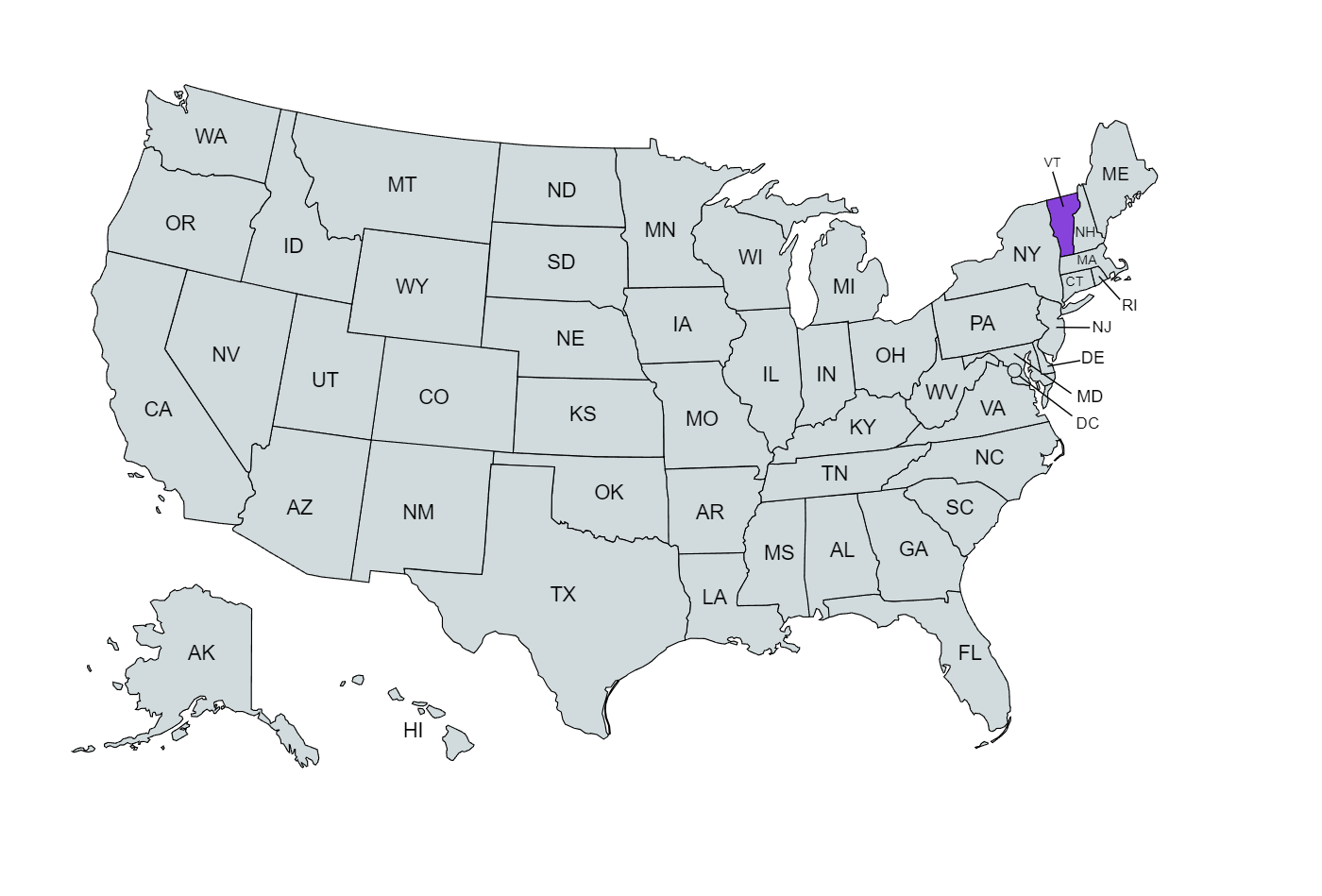Vermont Paycheck Calculator: Calculate Your Net Pay
If you’re wondering, “How do I figure out how much money I take home in Vermont?” we’ve got you covered.
Use our simple paycheck calculator to estimate your net or “take home” pay after taxes, as an hourly or salaried employee in Vermont.
Paycheck Calculator
Meanwhile, get ahead with our free resources:
How Does the Paycheck Calculator Work?
Input your salary information, such as wage and pay frequency, and our tool will handle the tax calculations for you. Once you’ve filled in all the information, click the “Calculate Tax” button, and the calculator will provide an estimate of your net or “take home” pay for the specified pay period.
Overview of Vermont Taxes
Vermont's individual income tax operates through five brackets, with rates varying from 3.55% to 8.95%. While Social Security benefits remain untaxed, other income sources, such as stocks and bonds, are subject to a flat 6% rate.
When it comes to sales tax, Vermont imposes a 6% state sales tax on a wide array of goods and services. Local taxes can tack on up to 1%, resulting in an average combined rate of 6.359%. However, the tax landscape provides relief by exempting groceries, clothing, prescription drugs, menstrual products and even diapers from taxation.

Property taxes in the Green Mountain State surpass the national average, with a median annual bill of $4,570 and an average effective property tax rate of 1.9%. Here, homeowners can explore relief programs, such as a property tax credit of up to $8,000, offering retirees an attractive option to lessen their tax burdens.
Estates exceeding $2.75 million face a sliding scale of tax rates, ranging from 0.8% to 16%.
For those on the go, gasoline carries a price tag of $0.316 per gallon, while diesel incurs a rate of $0.341 per gallon. Vermont adds an estate tax into the mix, decoupled from federal estate tax laws.
Act 174 grants Vermont's commissioner of taxes the authority to compile lists of delinquent taxpayers, promoting tax compliance. Residents can conveniently track their state refund statuses online.
Median Household Income in Vermont
Vermont is renowned as the leading producer of maple syrup in the United States, contributing to its distinct economic landscape. As of 2022, the state's Gross Regional Domestic Product (GRDP) reached $40.6 billion, making it the smallest among all U.S. states.
The state's top employment sectors include Real Estate and Rental and Leasing, Healthcare and Social Assistance and Manufacturing.
While Vermont boasts a low five-year average unemployment rate of 2.9%, its business costs are 12% above the national average. The economic outlook appears bleak, with expectations of lagging job and income growth compared to the rest of the nation over the next five years.
Salaries in Vermont vary widely based on position. However, the median household income can give you a glimpse at the average salary a household is earning in this state.
Tips for Maximizing Your Paycheck
Here are some tips to help you maximize your paycheck:
- Understand Vermont's tax laws and how they impact your income
- Take advantage of available tax credits, such as the property tax credit for homeowners
- Develop a budget that outlines your monthly expenses and track your spending
- If you have extra income, explore investment opportunities
- Analyze your spending habits and identify areas where you can cut back
- Invest in your education and skills to remain competitive in the job market
